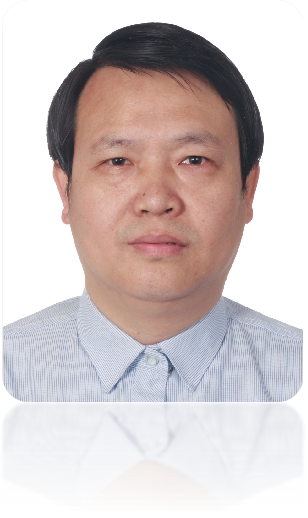Recent Development of Atomic Interaction Potential and Its Application in U and Uranium Alloys
Wensheng Lai*,Yi Wang,Zheten Yu,Zhengjun Zhang
Tsinghua University, Beijing 100084,China
ABSTRACT:Ab initio molecular dynamics (MD)
simulation is the most accurate method to carry out MD simulation at the atomic
scale. However, due to its large amount of calculation and time-consuming, the
calculation scale is small (generally no more than hundreds of atoms). In order
to carry out large-scale simulation, classical molecular dynamics simulation
based on atomic interaction potential, which can be used not only in MD simulation,
but also in molecular statics, Monte Carlo and transition state (NEB)
calculations, has been proposed. This presentation introduces the recent
development of atomic interaction potential from based on analytical function,
force field matching to machine learning method. By analyzing various kinds of
atomic interaction potentials, it can be found that the traditional atomic
interaction potential and machine learning potential can be regarded as the
mathematical expansion approximation of embedded atom method at different
precision levels. The main problem of developing atomic interaction potential
suitable for high-precision and large-scale atomic simulation is the
introduction of atomic bond order correlation term and a systematic complete
and efficient basis function set for describing electron density in this
expansion approximation. The presentation will also give the introduction of
the atomic bond-order correlation term into the atomic interaction potential
and the application of systematic complete and efficient electron density
description basis set to study the thermal and mechanical properties of uranium
and uranium niobium alloys.
Keywords: embedded atom method;atomic interaction potential;machine learning
potential;molecular dynamics simulation;
* Corresponding author:
wslai@tsinghua.edu.cn

Wensheng Lai has completed his PhD from Tsinghua University and Postdoctoral Studies from Department of Engineering, University of Liverpool, UK. He is a full professor at School of Materials Science and Engineering, Tsinghua University. He has published about a hundred papers in reputed journals cited by SCI. He has been teaching <<Quantum Physics and Statistical Physics>> and <<Solid State Physics>> for undergraduates and serving as an international advisory board member for International Conference of Computer Simulations of Radiation Effects in Solids. (COSIRES).